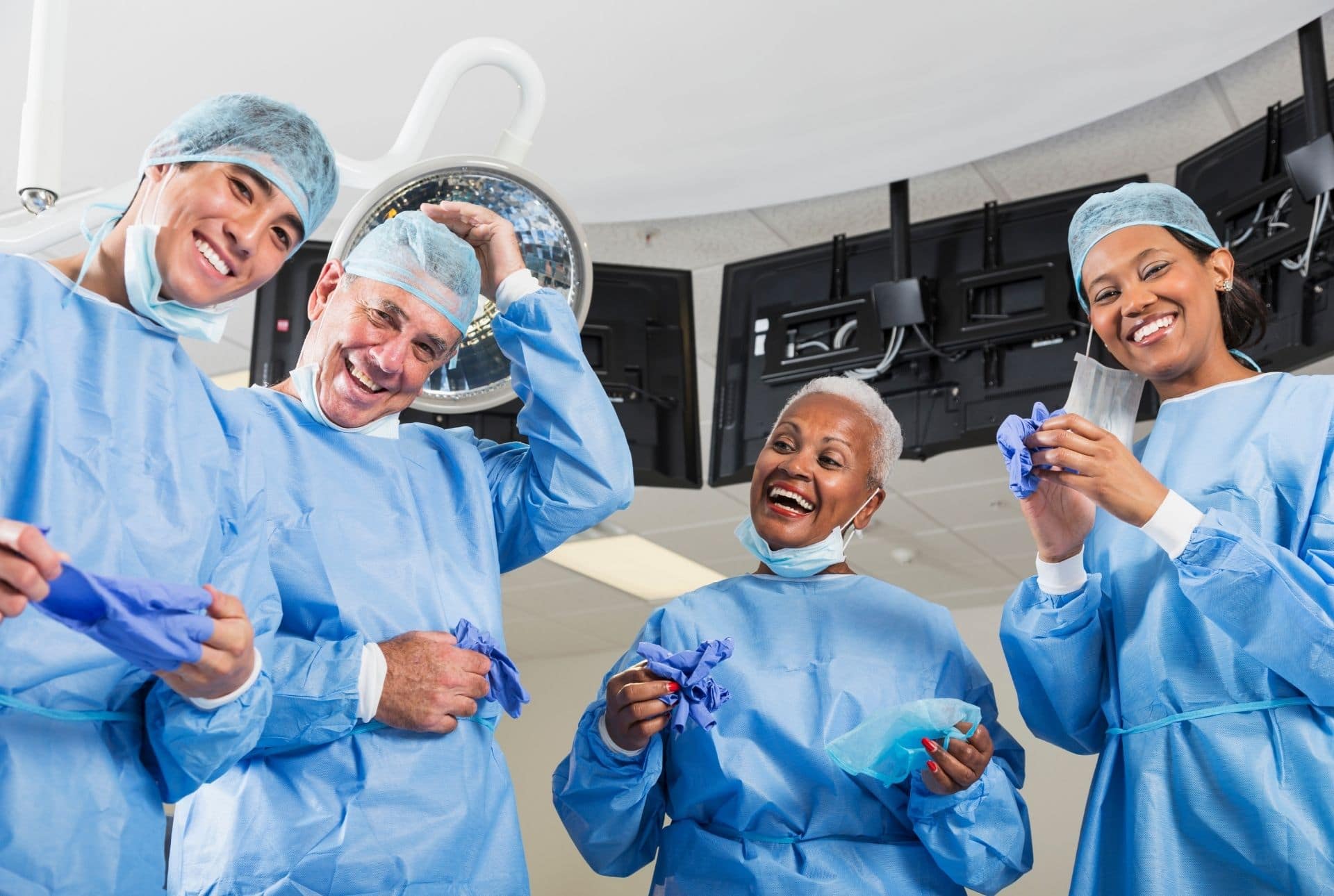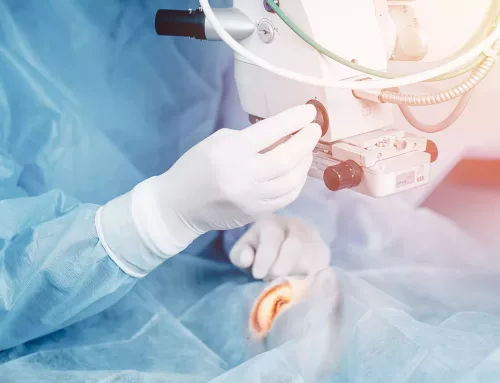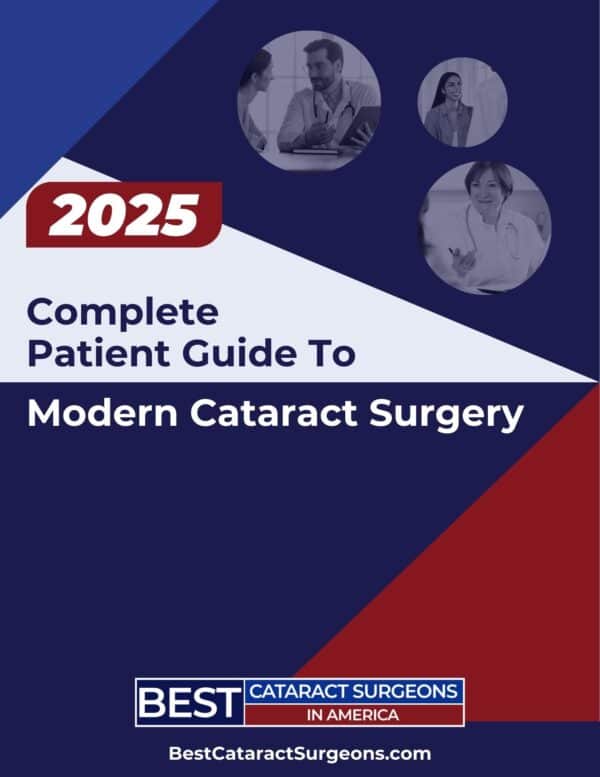Patients often wonder if cataract surgery is painful. The most common thing most patients say after their surgeon tells them that their surgery is finished is: “Really??? It’s over already?! That was it!!! Amazing!!!”
Modern cataract surgery is typically so fast and painless that it’s truly amazing. Complications are not very common. It’s easier than a routine trip to the dentist’s office. Of course, some patients have complex cases, but these are almost always known ahead of time. For routine cataract surgery, your procedure will take less than 15 minutes, and you’ll be kept very comfortable.
In this article, we’ll discuss some of the things to know about managing your anxiety and expectations for what the day of surgery will be like.
Managing Your Anxiety
The first thing to realize is that it’s 100% completely normal to be anxious about the idea of having surgery on your eye. No one likes the idea of having someone so close to their eye. But the important thing to remember is that this is just an “idea”. It’s all in your mind. Numbing drops for the surface of your eye have been around for years.
Moreover, your cataract and the space inside your eye where all the work is done, don’t even have nerves in it to feel pain or discomfort! On top of that, your doctor will give you a great cocktail of sedatives that will relax any nerves that you might still have.
Comfort In Numbers
There are approximately 4 million cataract surgeries done per year in the United States. If patients were comfortable during the surgery… you’d know about it. We encourage you to go out and ask your family or friends who have had surgery about their experience. They’ll be very likely to tell you that it was a breeze and they couldn’t believe how easy and fast it is.
The Sedatives
There are a variety of sedatives that can be used during cataract surgery. Some are given through an IV and some are given orally. Most patients are able to take these sedatives. However, it’s reassuring to know that many patients every year are too unhealthy from a variety of cardiac or pulmonary medical conditions that make it unsafe to give them sedatives at the time of the procedure.
These patients still have the surgery just using eye drops to numb the eye. So many patients find it comforting that the surgery is often done without any sedation at all, and patients still find it to be a breeze. Again… it’s all in your mind! But with that said, most doctors encourage their patients to take some sedation if they are healthy enough for it.
IV Sedation Versus Oral
The most common way that sedation is given for cataract surgery is through an IV, or “intravenously”. This has been done for decades. However, modern cataract surgery is so quick and painless, that for many patients, especially if they’re a difficult stick, oral sedatives are an increasingly excellent option. For many patients placing the IV is the worst part of the experience! For this reason, many surgery centers are moving towards giving oral sedation.
There are benefits and downsides to each option. The most obvious benefit of oral sedation is that you don’t need to be stuck with a needle for an IV. You also may be allowed to have a light morning breakfast if you’re having oral sedation. The benefit of IV sedation is that the dose can be turned on faster.
If you need a little bit more sedation, a little bit more can be given through the IV and it will take its effect in seconds. Both are very effective at keeping patients comfortable during surgery, and as we mentioned above the purpose of the sedation is to relax your mind, since the surgery can often be done without any sedation at all.
Not Waiting Too Long
Routine surgery is routine! However, some patients wait too long for a variety of reasons. If a cataract becomes too advanced the complexity of the surgery can increase, including the risks of complications, and the duration of the procedure.
We’d all like all of our surgeries to be as quick and routine as possible. So if there’s one good thing that you can do, it’s have routine eye exams to make sure your cataracts are caught at the right time. If you do have cataracts and are looking for a cataract surgeon in your area, use our surgeon finder here











